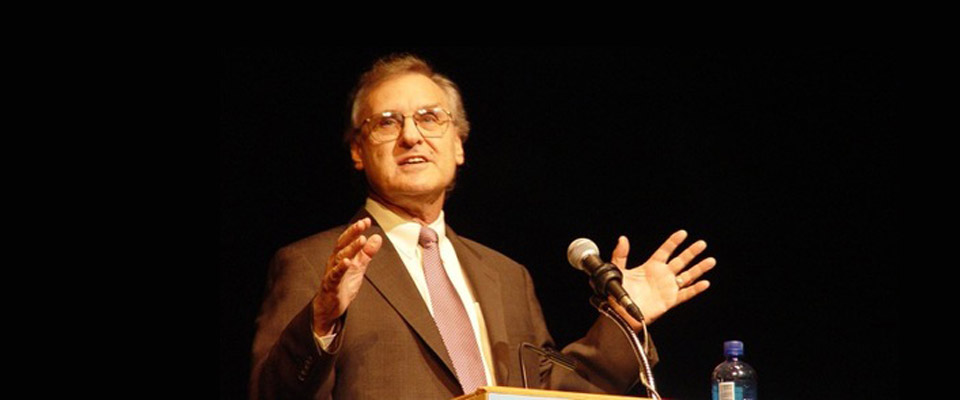For the longest time, I’ve been concerned about the Millennial generation. As the story goes, they won’t be able to buy a house, or find a full-time job, let alone one with benefits. And then, there’s climate change.
At the recent NDP convention in Edmonton, Stephen Lewis spoke convincingly about an environmental catastrophe that was certain to arrive during the Millennials’ lifetime if the delegates didn’t embrace his son Avi Lewis and daughter-in-law Naomi Klein’s Leap Manifesto.
Stephen Lewis, who is the best orator in Canada today, had me convinced until I listened to the speech by Rachel Notley, the Premier of Alberta, who is no slouch herself when it comes to speechifying. She delivered her insights into the Leap manifesto when she stated: “The Government of Alberta repudiates the sections of that document that address energy infrastructure. These ideas will never form any part of our policy. They are naive. They are ill-informed. They are tone-deaf.”
Just maybe, I’ve been over-reacting to the dire predictions for Millennials. Perhaps the kids are all right and along with legions of other hovering parents, I have underestimated our children and overestimated the dangers they face. I’m in no way denying climate change, but world governments are starting to take carbon emissions to heart.
Without immediately wiping out every job in the oil and gas industry in Alberta, it may be possible to be environmentally responsible. At the Paris Climate Change summit, 196 of world’s governments agreed that fossil fuel emissions must be reduced to zero by the second half of the century to avoid catastrophic damage. Millennials are exhibiting the intelligence and the perseverance to manage this change as global economies move incrementally towards renewable energy.
Next I got to thinking about other areas where our kids are doing just fine. Recently, the Globe and Mail picked up a study from The Atlantic showing that Canadian Millennials are doing much better than their counterparts across the developed world and particularly in the U.S.
“In fact, Millennials are outpacing the oldest generation in annual household income and sprinting ahead of their American cohorts in inflation-adjusted income,” said The Globe.
In Britain, for instance, Millennials are falling behind older adults. Across the pond, the percentage of growth in household disposal income above the national average is 60 per cent for those age 65 to 69 and closer to 70 per cent for those between 70 to 74.
In Canada in comparison, the oldest generation is experiencing a 15 per cent growth rate in annual income and Boomers are doing worse with only a five per cent growth rate in annual income.
In the U.S., Boomers are also doing better than Millennials with a growth rate of almost 25 per cent while the kids are falling behind by almost 10 per cent.
These numbers tell the story of a struggling middle class of Canadian Boomers, who often feel responsible for their grown-up kids and for their elderly parents.
Boomers are by far the largest segment of the Canadian population, with those between 50 and 60 making up about 6-million of the country’s inhabitants. Yet, Boomers earn an average of $98,000 in annual household income while Millennials, who are fast gaining on the Boomers in sheer numbers, are already making $71,000 in average annual household income. Gen X earns $102,000 in household income.
The story gets better for Canadian Millennials. In this country, Millennials are watching their household income rise when adjusted for inflation, while in the U.S. the same cohort is experiencing a dip when their average household income is adjusted for inflation.
With the new Liberal government promising middle-income families a generous child-care benefit, tax cuts, and healthy expenditures in infrastructure spending, I’d say that our children are well on their way to reaching the same level of financial wellness as we did. There’s also going to be billions of intergenerational dollars passed down from Boomers to their kids during the next thirty years.
The Millennials I know are hard-working, serious-minded and less prone to complaining than we Boomers were when we were young adults. Millennials seem to be able to operate within the system to make it better while being grateful when they score a good job, and jubilant when they’re promoted. From what I can see, they commit to their work for longer than we did, and do less job-hopping.
It’s us, the Boomers, who I’m beginning to worry about. In France and Spain and Australia, older households are showing a generous lead on disposable incomes above the national average growth rate. The best place to live if you’re between 65 and 69, after the UK, is France, where your disposable income is about 50 per cent higher than the average, twice that of Canada.
These numbers explain why so many Canadian seniors are in debt and looking for solutions. Many of us, including myself, are carrying mortgages and more of us are looking for ways to unlock the equity in our homes, so our cash flow rises to meet our daily needs. I’m no longer convinced that the media who painted us as a generation of spendthrifts was right.
Real wages in Canada, when accounting for inflation, haven’t risen in 40 years, so when you look at your paycheque or your pension and wonder why you can’t afford the hydro bill, it mostly has to do with working middle class wages that have been stagnant since we started our careers.
Agreed, house prices have exploded. If you were smart enough –or lucky enough—to buy a house in the 1970s or 80s and stay put, you’ve done well. But not everyone lives in Toronto or Vancouver, is mortgage-free and living on a generous pension.
There’s a petition going around the Internet these days that demands that the federal government stop taxing retiree’s CPP benefits and clawing back our OAS cheques when we hit $72,000 in annual income.
I’m thinking about signing it.































